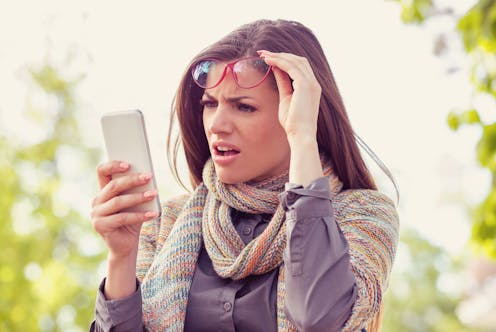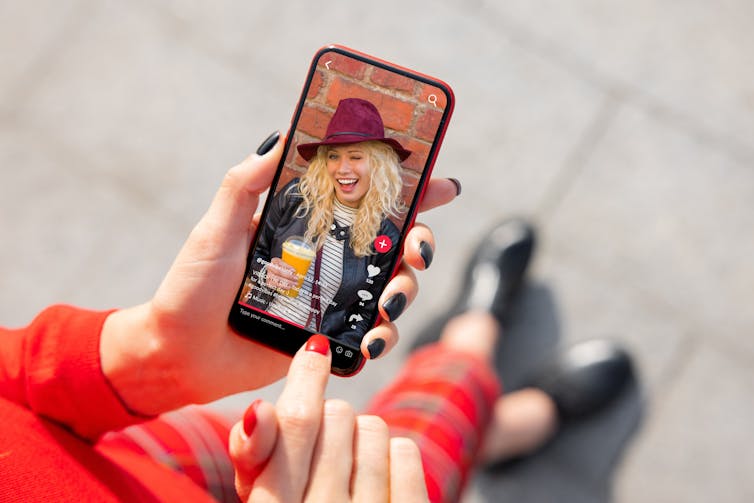
Going viral was once a dream for creative types hoping to make it big on YouTube. But in the age of livestreaming and public shaming, it’s now the stuff of nightmares. TikTok trends, pranks and even “acts of kindness” have led to people finding accidental viral fame without their consent, or even their knowledge.
If you’ve been filmed or photographed and gone viral, you may be wondering if there is any legal action you can take. In many areas the law has not caught up with technology and the social trends that come with it – but in certain circumstances it may be on your side.
Privacy rights are protected by the UK Human Rights Act 1998, which aims to prevent other people from interfering with your life. It stipulates that personal information about you, including photographs and correspondence such as letters and emails, shouldn’t be shared publicly without your permission. Other personal information, such as your address and telephone number, is protected under the Data Protection Act 2018.

This article is part of Quarter Life, a series about issues affecting those of us in our twenties and thirties. From the challenges of beginning a career and taking care of our mental health, to the excitement of starting a family, adopting a pet or just making friends as an adult. The articles in this series explore the questions and bring answers as we navigate this turbulent period of life.
You may be interested in:
Social media: how to protect your mental health
Premenstrual dysphoric disorder: the frightening psychological condition suffered by Dixie D’Amelio
Cost of living crisis: what are your rights if your landlord wants to increase your rent?
The problem with privacy law is that it only applies where there is a “reasonable expectation of privacy”. This means your rights would be breached if someone hacked your phone and stole private photos, but not necessarily if they took a photo of you on public transport or in another public place.
Defamation law could protect you if someone uses your image in a defamatory way. The legal test means it has to cause, or is likely to cause, serious harm to your reputation and only applies if what the person shares is untrue. So if the photo of you is real this is unlikely to apply, but if the image is manipulated to look like you are doing something that you didn’t do, such as deepfakes, then it could apply.
These rights also apply to children, even when the image is being posted by their parents. Given how parents document their children’s lives on social media, we’re likely to see legal cases on this soon.
Read more:
Should I post photos of my children online? Here’s what new parents need to know about sharenting
Since 2015, the law has specifically prohibited the sharing of private, sexual photos or videos of another person without their consent. Since 2021, this also includes threatening to disclose intimate sexual images. Upskirting – taking a picture under another person’s clothing without their knowledge – was criminalised in 2019.
Criminal laws like these depend on the Crown Prosecution Service to press charges against someone. This means that individuals have to report the incident to the police and rely on them to take it forward.
Privacy, performance and the public
When speaker and author Ed Gillespie tweeted a photo of topless man working on his laptop on the train in a heatwave, it went viral. But it didn’t actually breach the man’s privacy rights, because there is no expectation of privacy in a public place, according to the law. The person in the photo saw the tweet and replied: “Ed, I’m not sure why you felt entitled to photograph me and share it on Twitter without my permission, nor why others feel entitled to comment”, prompting Gillespie to delete it and apologise. Unfortunately for the man, the image had already been republished by the Mail Online, The Metro and The Sun.
Either way, Gillespie was the copyright holder of the photo. Copyright is a legal right that gives the owner the power to control the use of their content, including photos, videos and correspondence. This is how Meghan Markle won her case against a newspaper who printed a private letter that she wrote to her father.
The copyright holder is usually the person who took the photo, made the video or wrote the letter. If your own photos or videos are shared publicly by someone else, you can ask websites to remove the content or sue them for copyright infringement. This might seem strange because we share other people’s content on social media all the time, but legally the rights holder is whoever took the photo – and copying it without permission is technically copyright infringement.
If someone else takes the photo or video, they have the copyright. This has been at the heart of cases against celebrities, including Gigi Hadid and Khloe Kardashian, who shared photos of themselves taken by paparazzi on their social media channels. The photographers, who owned the copyright, sued them. The cases settled out of court. Although these are US cases, the laws are the same in the UK.

Kaspars Grinvalds
If you are being filmed, other UK rights that could come into play are performers’ rights. These can stop someone recording a live performance without permission and can stop unauthorised copies of their performance being shared. This right only applies if you are acting, singing, dancing or performing a literary, dramatic or musical work.
The legal rules on what does or doesn’t count as a performance are quite vague – magicians, clowns, jugglers, impersonations, interviews and catwalks probably count but sports performances do not. Some argue that it also includes improvisation, so you might even have a performance right if you are filmed having a tantrum in public. And it doesn’t have to be a paid performance to qualify.
You’ve gone viral – now what?
If someone is threatening to share – or has shared – explicit images or photos of you online, then this is a criminal offence and you should report the incident to the police.
If someone has filmed you in your home or a private setting where you have a reasonable expectation of privacy, this could be a breach of your right to private life. If someone takes photos or videos made by you and shares them without your permission, this could be a breach of your privacy or infringement of your copyright. In these cases, then it’s up to you to take legal action.
Privacy is a qualified right, meaning that it can be breached under certain circumstances, such as if it is in the public interest. This can be a useful defence for newspapers publishing intimate photos of high-profile politicians whose behaviour may reflect something important about their leadership.
Social media platforms also allow users to submit takedown requests if you think that someone’s content breaches any of your rights explained above, or doesn’t follow the platform’s community guidelines against bullying, harassment or hate speech. In cases where you’ve been photographed or filmed publicly that don’t involve explicit content, this is currently still the best course of action for immediate resolution.
![]()
Hayleigh Bosher does not work for, consult, own shares in or receive funding from any company or organisation that would benefit from this article, and has disclosed no relevant affiliations beyond their academic appointment.
Source: TheConversation


